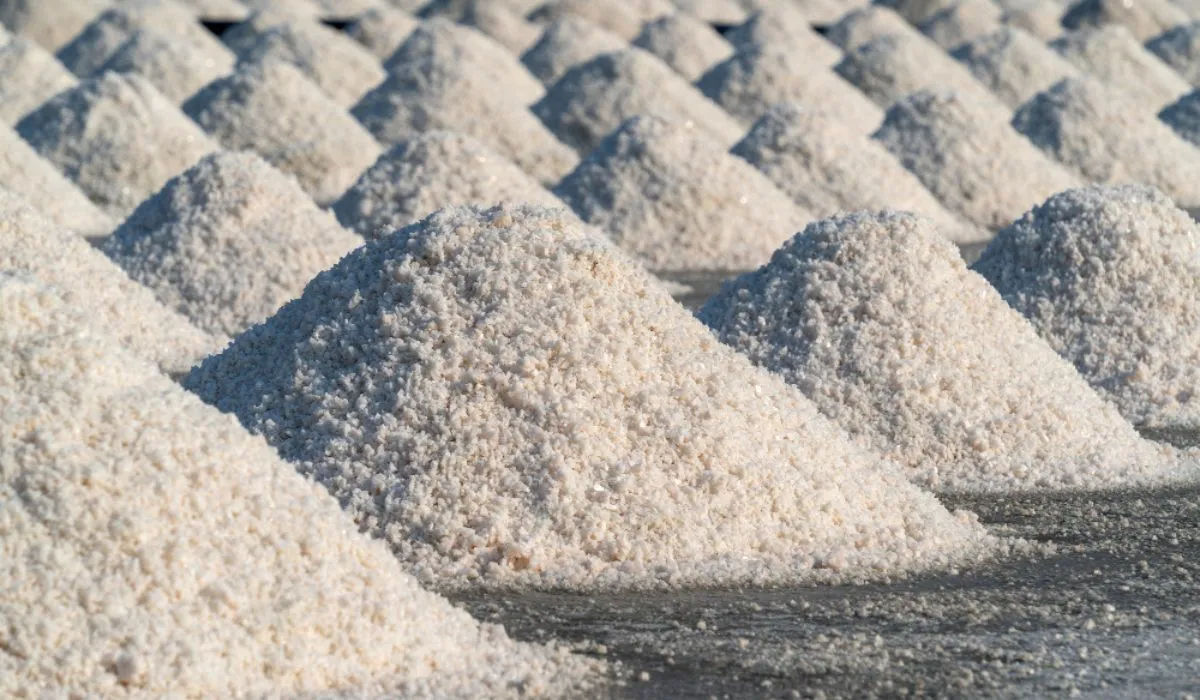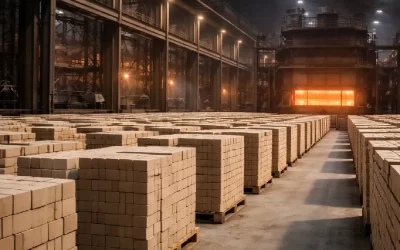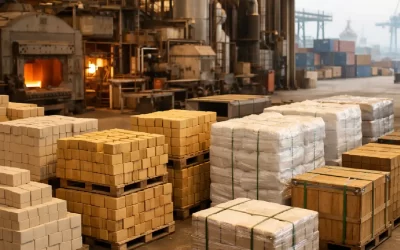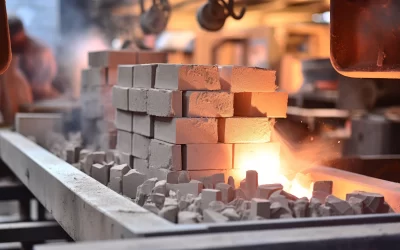There is a high reliance on refractory materials in the industry. The alumina dense castable refractory material is one of the best-selling refractory materials in India. It is extremely stable and strong at high temperatures. In addition to lining furnaces and kilns, it also serves as an insulating layer in critical industrial equipment, playing a critical role in maintaining operational efficiency and structural integrity.
This comprehensive overview aims to provide a detailed exploration of alumina-dense castable refractory materials, covering everything you should must know. So without further ado, let’s get prepared to be captivated by the boundless potential of Alumina Dense Castables.
What are the Basics of Castable Materials?
Let’s begin with the basics of Castable materials before exploring alumina dense castables. Castables or refractory castables, are a type of refractory material. They are typically made from a blend of high-purity refractory aggregates, binders, and additives. There are two primary types of refractory castables available in the market; alumina dense castable refractory, and high alumina castables. They both are designed for specific temperature ranges and applications.
Castable Refractory Density
Heavy: > 2.0g/cm3
Medium: 1.0-2.0g/cm3
Light: 0.4-1.0g/cm3
What are the Alumina Dense Castables?
Alumina dense castables are a specialized type of refractory castable material known for their high alumina content and exceptional thermal properties. They are composed of high-purity alumina aggregates, binders, and additives, these castables are designed to withstand extreme temperatures and harsh operating conditions in various industrial settings.
Moreover, high alumina dense castables are typically graded according to the AL2O3 content of the raw materials used. The level of aluminium also represents the difference in density. In general, the density of alumina dense castables typically ranges from 2.8 g/cm³ to 3.0 g/cm³. This high density contributes to their excellent features offering impressive outcomes.
Alumina Dense Castable Properties
– High Refractoriness
– Lower Porosity
– Outstanding Thermal Shock Resistance
– Excellent Mechanical Strength
– Compact Bulk Density
Alumina Dense Castable Features
– Minimal Shrinkage
– Dimensional Stability
– High Shelf Life
– Less Maintenance Required
– Available in Various Specifications
Alumina Dense Castable Applications
– Furnaces & Kilns Linning
– Heat Insulation Systems
– Steel Ladles
– High-Temperature Resistant Equipment
– General Purpose Repairing
Industries Use Alumina Dense Castable Refractory
– Steel Industry
– Petroleum Industry
– Power Generation Industry
– Marine Construction
– Other Infrastructure Industries
An Importance of Alumina Dense Castable
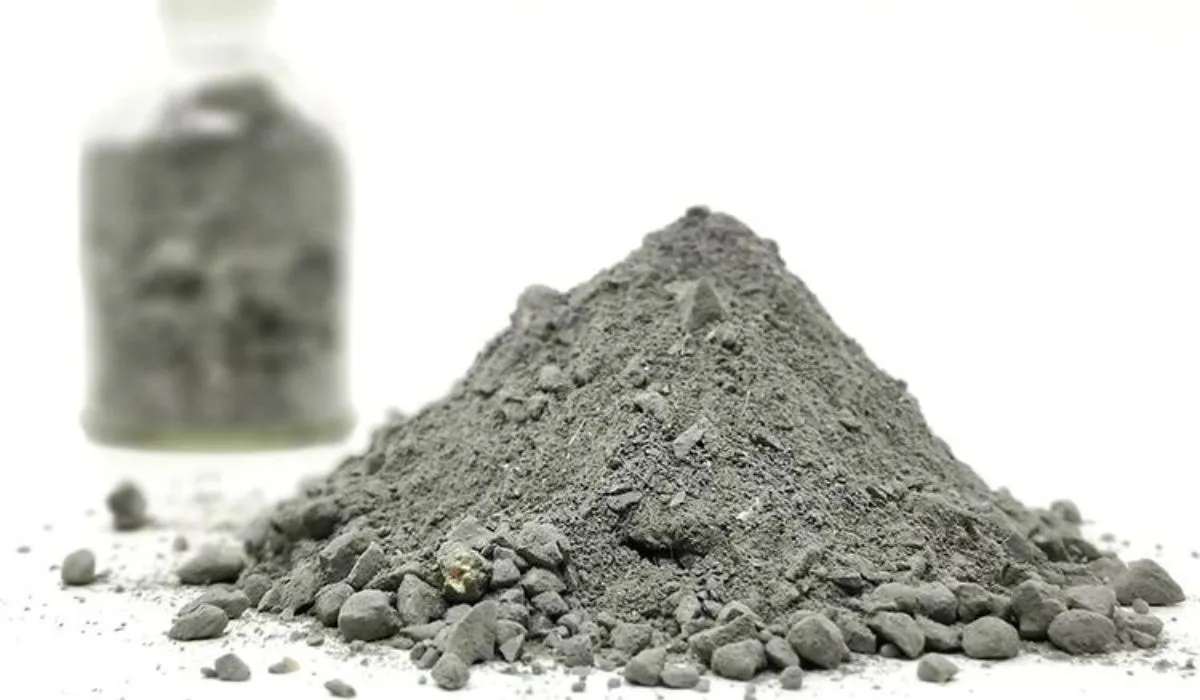
Alumina dense castables are special types of cement that are suited for use in high-temperature settings. The reason why these are required is that traditional cement does not work in industries where high-temperature processes are involved and alumina dense castable works effectively ensuring optimal performance. They can withstand can withstand temperatures from 1300°C to 1800°C; making them suitable for lining furnaces and kilns.
The Straightforward Table of Alumina Dense Castable
Take a look at the table below to gain a more comprehensive understanding of alumina dense castable.
| Property | Value |
| Alumina Content | High |
| Density | 2.8 – 3.0 g/cm³ |
| Thermal Conductivity | High |
| Refractoriness | Excellent |
| Porosity | Low |
| Abrasion Resistance | High |
| Thermal Shock Resistance | Excellent |
| Chemical Resistance | Good |
| Application | High-temperature environments |
| Industries | Steel, Cement, Petrochemical, Non-ferrous metal production |
To Conclude – The Buying Guide of Alumina Dense Castables:
When purchasing alumina dense castables, several important factors should be considered to ensure the best material for the intended application is chosen. Let’s get in!
– Understand the specific requirements of your application.
– Have a consultative insight talk with refractory experts.
– Consider alumina content based on the application’s thermal and chemical needs.
– Select a castable that guarantees effective temperature distribution and heat transfer within the refractory lining.
– For long-term durability and performance reliability, choose a castable with adequate resistance.
– Contact a reputable refractory supplier with a track record of providing high-quality alumina dense castables while adhering to relevant industry standards and regulations.
Moreover, if you are in search of the best refractory industry; your search ends with Ganeshas. Ganeshas is one of the leading refractory manufacturers in India, having years of experience in delivering high-quality refractory materials including fire bricks, alumina bricks, refractory castable, refractory cement, high alumina dense castable, and more.

